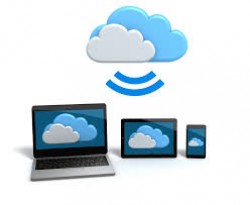
What is Self-Management?
Self-Management brings organizational structure to an enterprise spontaneously. Individual Colleagues, directed by their Personal Commercial Mission, are principally responsible for organizing their relationships. Their Personal Commercial Mission is their "boss." The managerial functions of planning, organizing, staffing, directing and controlling are the personal responsibility of each Colleague.
Self-Management is an alternative to the traditional, hierarchical method of organizing we see most often in modern organizations. There are a few key ideas that are central to the Self-Management philosophy, namely that:
People are generally happier when they have control over their own life (and work)
It doesn't make a lot of sense to give the decision-making authority to the person that furthest (literally) away from the actual work being done
When you give good people more responsibility, they tend to flourish
The traditional hierarchical model of organizations is not scalable—in fact, it's a recipe for a slow painful death
There's an undeniable link between freedom and economic prosperity in nations around the world—and, further, an undeniable link between lack of freedom and corruption at the national level. The same is true of human organizations in general.
Some principles practices of Self-Management are reasonably commonplace—self-directed work teams, employee empowerment, distributed decision making, "flattening" the organization, elimination of bureaucratic red tape. These concepts are widely accepted as desirable goals in our respective organizations, and all of these have flavors of Self-Management.
But true Self-Management is more than just a set of "flavor of the month" business trends; it's a fundamental mind-shift in the way we [view] human organizations, management and organizational strategy. We can talk about freedom in the workplace and we'll be talking about something that is a part of Self-Management, but we aren't really talking about Self-Management; we can talk about employee empowerment, and we'll be talking about something that's fundamental to Self-Management, but employee empowerment alone doesn't get you Self-Management.
Self-Management, simply stated, is an organizational model wherein the traditional functions of a manager (planning, coordinating, controlling, staffing and directing) are pushed out to all participants in the organization instead of just to a select few. Each member of the organization is personally responsible for forging their own personal relationships, planning their own work, coordinating their actions with other members, acquiring requisite resources to accomplish their mission, and for taking corrective action with respect to other members when needed.
This manifests itself as a total absence of formal hierarchy. Formal hierarchy implies that there are those within the organization who have authority to direct the actions of others, and that there are others within the organization who have only limited authority. The principles of Self-Management acknowledge that those who would traditionally be [view]ed as the "employees" are, in fact, the ones who have the greatest insight into the management of their day-to-day functions and who are, further, in the best position to take immediate action when circumstances demand a response or a change in course. Those principles extend the rights and resources required to take action and make decisions out to those who are best suited to take action and make decisions rather than arbitrarily extending those rights to a select few individuals who we anoint with the title of "manager".
Source: www.self-managementinstitute.org













یک نظر اضافه کنید
شماره موبایل شما منتشر نخواهد شد.زمینه های مورد نیاز هستند علامت گذاری شده *
امتیاز شما